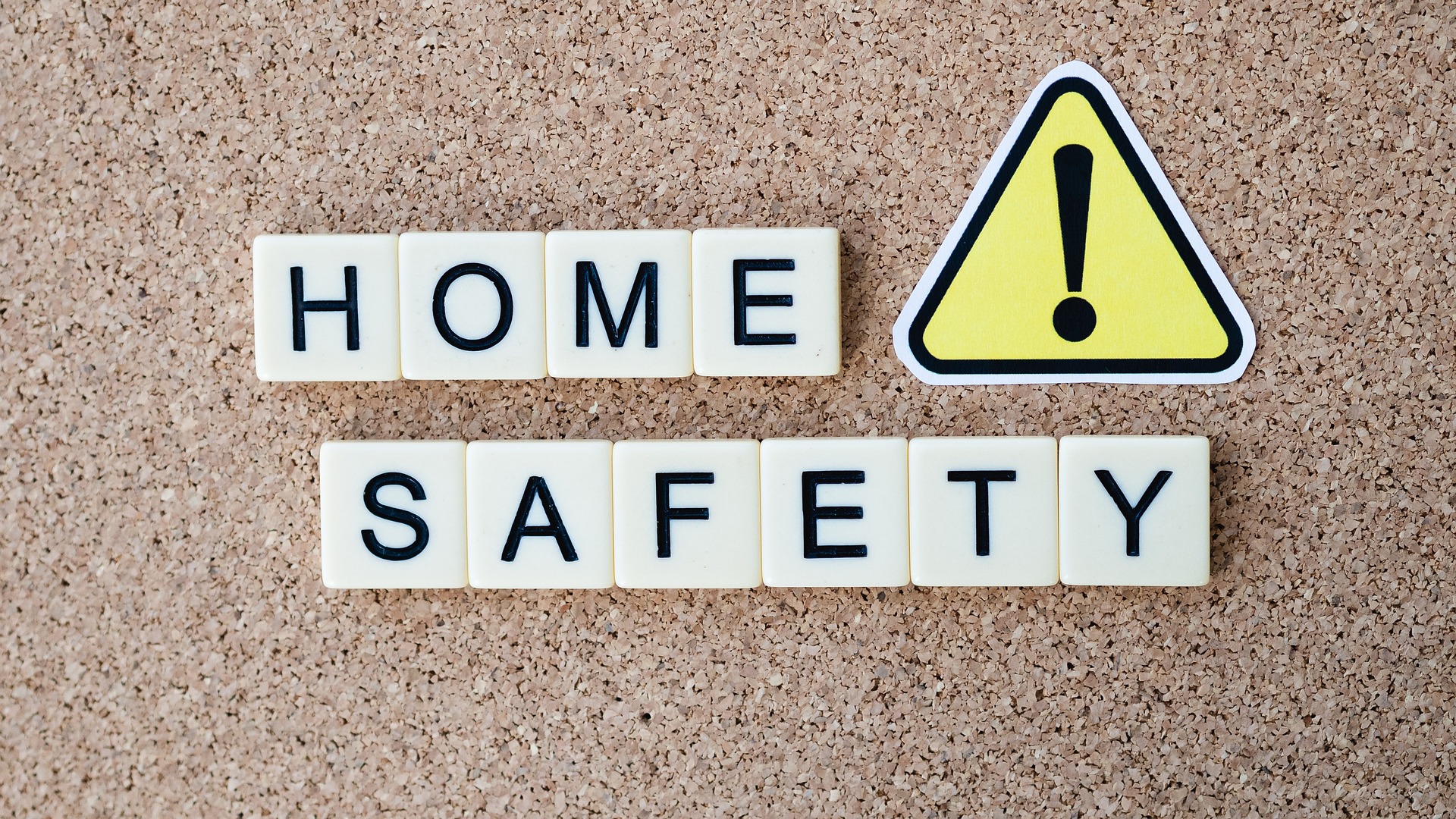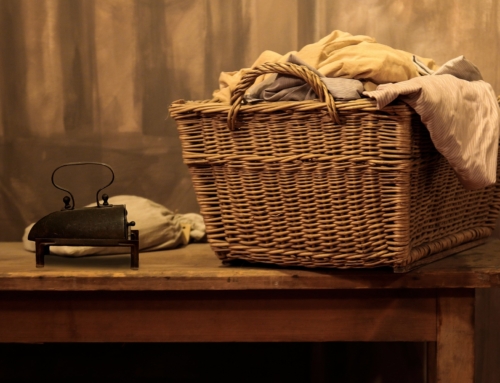
10 Tips for Home Safety in 2024
Having a safe home is a top priority for most, but it might be overwhelming to find the best ways to secure your home and its occupants. There are many factors to consider when deciding on home security, but we’ve listed 10 home safety tips to help keep you and your family safe. You’ll also find advice from experts to further guide you in your home safety journey. While it might not be viable or within your budget to implement every tip listed, implementing just one can still improve the overall safety of your home.
1.
A home security system can do more than just detect intruders; it also can detect fire, smoke, carbon monoxide, and water leaks. If there’s a problem, a good home security system also will place an automated call to a central monitoring service, first responders, or the occupant of the home or someone the occupant designates.
An alarm system can be installed professionally, or a homeowner can install one themselves. Current technology allows companies to include some advanced features in home security systems, including the ability to control other equipment such as lights, locks, thermostats, and smoke detectors. For example, if a smoke detector goes off, it can shut down the HVAC system, it can light a pathway to your front door, and even unlock the door.
Even if you don’t want a complete home security system, you might consider purchasing a few devices such as cameras to cover key entry and exit points, or perhaps water detectors where leaks are common, such as supply lines for refrigerators or toilets.
Home security technology can also be beneficial to prevent burglars from viewing your property as vulnerable. Smart controls, for example, can give the impression that the home isn’t vacant. Credible posted security signage can also act as a deterrent to potential intruders.
A good homeowners or renters insurance policy can’t prevent losses, but they can limit the financial consequences. The key is to work with your insurance company or agent to make sure your coverage is adequate.
According to Joe Meisinger, Chief Underwriter for Travelers Insurance, most homeowners are required by their mortgage company to have basic coverage against most hazards including fire, windstorms, non-weather water damage, and hail. He says many people don’t realize that flooding isn’t covered by their homeowners or renters policies, but instead is obtained from the Federal Emergency Management Agency.
Meisinger also says that many people are confused about the difference between flooding and non-weather water damage. Most policies cover non-weather water damage, which happens when a water line freezes and bursts, or when a supply line to a toilet or refrigerator breaks. Other likely spots for this sort of damage are second-floor washers, where a broken hose can flood everything beneath it. By contrast, flood damage occurs from outside water sources like an overflowing river or lake. Review your coverage to make sure it matches your current circumstances and covers you against perils in your area that can cause damage. Travelers has tips to help its customers prevent losses.
If you’re shopping for homeowners or renters insurance, check out our Best Homeowners Insurance Companies of 2024and Best Renters Insurance Companies of 2024 ratings to get started.
You probably have some hazardous substances around your home. Those could be obvious things like paint thinner or gasoline for your lawn mower, but they go far beyond that. For example, dishwasher detergent pods or laundry pods can be fatal if swallowed. In addition, antifreeze tastes sweet to your pets, but can make them sick or kill them.
According to Dr. Steven Schultz, pediatric intensive care at the Palm Beach Children’s Hospital at the St. Mary’s Medical Center in Florida, household products should only be stored in their original containers. He said one common cause of poisonings is when people store substances such as liquid cleaners or detergents in soda bottles, leading children to think they’re safe to drink. He also says that such substances should be locked away where they’re out of reach of children or others who might consume them accidentally. Additionally, flammable substances must be stored away from sources of ignition.
In addition to storing hazardous materials safely, know the signs in children or pets that they have been poisoned, including gastric distress and vomiting. If that happens, a trip to the emergency room or the vet is warranted. Take the container that has the substance along so that medical staff can take the appropriate action. Keep the poison control number (800-222-1222) readily available.
To keep your pet safe and help pay for unexpected vet bills, consider getting pet insurance.
An accident that involves ingesting prescription medications is called unintentional poisoning. “There are about 300 poisonings and two deaths per day in the U.S. in the pediatric population per day” from unintentional poisoning, Shultz says. “A lot of these are preventable.”
He notes that children are especially susceptible to poisoning by prescription medications because of their lower body weight and because they tend to put things into their mouths to see how they taste. But the danger isn’t restricted to prescription drugs and can include over-the-counter medications such as aspirin and Tylenol.
Some medications can be disposed of by mixing them with wet coffee grounds and throwing them in the trash. However, Schultz says opiates should be disposed of through a drug disposal program. Many pharmacies can dispose of expired and unused medications, and local police departments can often take opiates and other medications for disposal.
While not exactly a medication, Schultz also warns that the nicotine used in vaping can be lethal to children if it even touches their skin. Even if it doesn’t kill them, it can cause serious injury.
Dry brush, leaves, and flammable mulch put your home at risk of fire. According to Steve Severaid, senior vice president and treasurer of Greenspan Co./ Adjusters International, a public insurance adjuster firm, even dry leaves in your gutters can increase the risk of your house burning if there’s a wildfire nearby. For the same reason, it’s important to control dry overgrowth near your home and properly dispose of other flammable materials like paper and charcoal used for grilling. Severaid says these precautions are especially important in drier areas in the Western U.S. where rainfall is sparse.
Meisinger agrees and notes that dry mulch used in landscaping near your home can be a fire hazard. As a result, it’s better to use other types of mulch that won’t burn. He says that fires cause the biggest insurance losses every year, and the increasing frequency and intensity of wildfires worsen this problem.
Those short, flexible water lines that connect your toilets, washing machine, and dishwasher to the main water lines in your home need to be inspected often and replaced every five years, Meisinger says. Replace them with braided stainless steel hoses instead of less expensive plastic ones that won’t last as long. Severaid cautions not to over-tighten them because the fittings on hoses and fixtures are fragile; too much force can cause them to crack and start leaking. Meisinger says that burst water supply lines are the second-largest cause of insurance losses in homes.
He also suggests that you also find and inspect your main water supply valve. It’s not uncommon to find a valve that hasn’t been used in years no longer works, which means you may not have any way to shut off the water if one of your water supply lines starts to leak.
It can be beneficial for homeowners to invest in a home warranty for plumbing, which starts at around $50 per month. This covers a range of plumbing replacements and repairs, including home plumbing and water lines. Unlike home insurance, a plumbing home warranty usually covers wear and tear, such as the cost of replacing worn-out valves, faucets, and showerheads.
Lighting should be a key consideration for anyone who wants to improve the safety of their home. Outdoor lighting around the perimeter of a house can help illuminate potential intruders so they don’t go unseen. This can deter burglars from targeting a property, since they usually look for dark and quiet homes that are easier to get in and out of without being caught. Lighting literally shines a light on intruders which will enhance their facial features on security cameras, increasing the chance of them being identified by relevant authorities.
Outdoor lights also allow neighbors to see what’s going on around your home and alert you to any potential issues. Motion sensor lighting works well for these purposes, or you could set up smart lights that can be controlled by a timer or your smartphone. In addition to added safety, home automation features can add the appearance that someone is home even when you’re at work or on vacation. An inhabited home is considered more risky to attack, making it less enticing to intruders.
Security cameras deter burglars and other intruders because they hate security cameras, according to the ADT study. Cameras don’t have to be fancy or expensive. For example, one of the reasons for the popularity of doorbell camerasfrom Ring, Nest, and other companies is that they’re easy to set up and install while still being effective. They contain sensors that can detect the presence of a person, and they can work in very low light and use infrared so you can see who’s in front of your house at night. Many security cameras also have a microphone and speaker so you can talk to someone within the camera’s field of view. Security cameras work with your smartphone so you can monitor them whether you’re home or not, and they can store images and videos for use by law enforcement. Since security cameras can be monitored remotely by your alarm company, you don’t have to be home to be protected.
That low-battery alarm in your fire alarms and carbon detectors is annoying for a reason, according to Steve Severaid; those devices need fresh batteries to work, and when they’re working they’re able to save lives. Meisinger says that getting internet-connected smoke detectors is even better because they can alert you if you’re not home and even can contact the fire department. Smart carbon monoxide detectors can alert you to the presence of the colorless, odorless, and poisonous gas that results from the use of devices such as space heaters and generators.
Each type of detector has a test button that will confirm that it works, and it’s a good idea to test these devices when you change batteries. They also should be inspected for dust that might clog the sensors. To test a smoke detector, you can light a match and hold it nearby to see if the alarm sounds. If you don’t have a garage and your heating and cooking are both all-electric, you might not need a carbon monoxide detector, but a smoke detector is always a must.
One of the best things you can do to improve home safety costs nothing at all. Getting to know your neighbors and developing a strong community on your street will benefit everyone. Typically, burglars prey on vulnerable areas where residents are not connected, so establishing a relationship with your neighbors can help serve as a deterrent against crime.
Getting to know your neighbors also means you can help each other out with occupancy cues, which is another useful way to deter intruders. When you’re away from home, neighbors can collect your parcels, so they don’t pile up by your front door and attract attention from burglars. Neighbors can also move your garbage bins, so it isn’t obvious to outsiders that your home is vacant.






